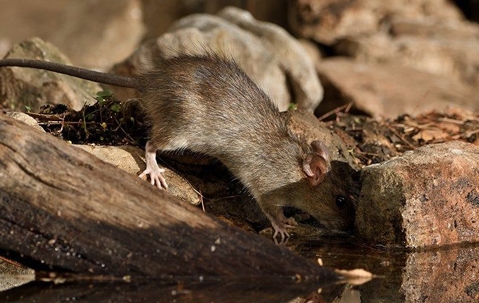No homeowner ever wants to discover a rodent problem, but for many, these annoying critters can become unwanted roommates overnight. Luckily, dealing with even severe infestations is possible if you act quickly. Your Corpus Christi pest control experts at EnviroGuard are here to help. Let’s look at the types of rodents you may have in your home, how they can damage your property, and what you can do to get rid of an infestation for good.
Common Rodent Species: Identifying Different Types Of Rodents
The most common types of house rodents found in the Corpus Christi area are mice and rats. Though these species are similar, they can impact your home in different ways, and figuring out which type of rodents you have in your home can help you get rid of them more effectively.
Here are a few tips to help you identify the type of rodents you may have in your home:
- Look at the size of their droppings. Both mice and rats have oblong droppings. But mice tend to have much smaller droppings than rats. Mouse droppings are typically between 1/8 and 1/4 of an inch long.
- Look at the foods they’re getting into: Rats eat almost anything they can find. Mice are a bit pickier. They prefer grains and cereals. Look at the types of foods they’re eating in your pantry. If you see damage to mostly grains and cereals, you may have a mouse problem.
- Consider what you’re seeing. Mice are much smaller and can move more quickly along the floor. Rats are much larger and move more slowly than mice, making them easier to spot.
If you think you have rodents in walls or around your home but aren’t sure which type you have, let an experienced rodent control specialist inspect your home. They’ll tell you which type of mouse or rat you have so you can establish a functional treatment plan.
Rodent Dangers: Health Risks And Property Damage
A rodent infestation can lead to serious damage and risk to your health and well-being. These pests can damage the food in your cupboards and pantry, forcing you to replace it. They can chew on furniture, drywall, and wiring, resulting in costly property damage. Rodents can also spread illnesses, including the following:
- Leptospirosis
- Tularemia
- Salmonella
- Adult respiratory distress syndrome
- Rat-bite fever
- Jaundice
- Cowpox virus
- Trichinosis
These illnesses are highly treatable, but it’s far better to avoid exposure in the first place. A rodent control professional will be able to help.
Professional Rodent Control: The Safe Way To Remove An Infestation
When you have an active rodent infestation, DIY preventative measures and control treatments will not be enough to eliminate those unwanted pests. Instead, you’ll want to hire an experienced pest control team to help you get rid of the infestation.
Professionals know how to identify the types of rodents you have, find their nests, and safely remove any living rodents from your home. Once the active infestation is taken care of, they’ll help you prevent new rodents from coming into your home.
Rodent Prevention Tips: How to Keep Your Property Rodent-Free
There are a few things you can do to reduce your risk of having a full-blown infestation in your home. Here are a few key rodent prevention tips to follow:
- Keep your food in airtight containers.
- Store yard waste, firewood, trash, and other items away from your house.
- Take the trash out several times a week and store it in a bin with a tight-fitting lid.
- Clean your home thoroughly.
- Inspect your home for gaps and holes around the foundation, doors, and other potential entry points. If you find any, repair them as soon as you can.
If you think you have rodents in your home, contact EnviroGuard today. Our team will remove rodents on your property and help you keep them out.

